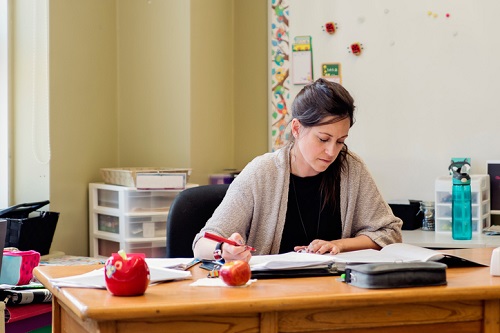
Teachers in Australia are paid 9% less than the average local cost of living, a new report has found.
The Teaching Salary Index, created by Teaching Abroad Direct, analysed data from the top 100 economies in the world and compared the average teacher earnings with the GDP per capita (PPP).
Globally, Australia sits in 13th place, behind Spain and Vietnam.
Perhaps one of the most surprising findings from the Index was that just 5 countries pay teachers more than the local cost of goods and services
Côte d'Ivoire is the leading country in the index, paying teachers 62% more than the local costs of living, followed by China where teachers earn 44% above the cost of living.
The US ranks 20th in the world, paying teachers 14% less than the average cost of goods and services, while the UK pays 18% less than the average local cost of goods and services, putting it in 22nd place within the index.
“Unfortunately, I don’t see much changing for local teachers in Australia,” Andrew Lynch, director of Teaching Abroad Direct, told The Educator.
“Our study shines a light on how underpaid and undervalued local teachers are in societies globally”.
Lynch said Australia’s placement, which puts local teachers (on average) well above most other countries means it is unlikely that Australia will see a massive need for an overhaul.
“This is likely to be the case, irrespective of how overdue it is, and that is the sad state of affairs Australian and other nations teachers are facing,” Lynch said.
“Government resources are stretched not just in Australia but the world over, leaving a market of sub-par valuations prevalent, specifically for those employed by and reliant on state resources”.
When will things change? It depends…
Lynch said that historically, governments around the world have fought hard to educate people, as this has gone hand-in-hand with economic success.
“We’re now a few decades into seeing the impacts of globalisation and rapid changes in technology,” he said.
“This has changed the face of local education, with both state and private schools looking for alternative methods of educating students and bringing down the costs of doing so”.
Lynch said whether or not local governments start to buck the trend will depend on the impact downward trending educational systems have on their ability to innovate and increase their economic standings.
“Common-sense tells us such a trend will not only lead to a less educated population, but also a worrying impact on society as a whole,” he said.
“Hopefully, the trend changes soon but I worry what has to happen before it does”.


